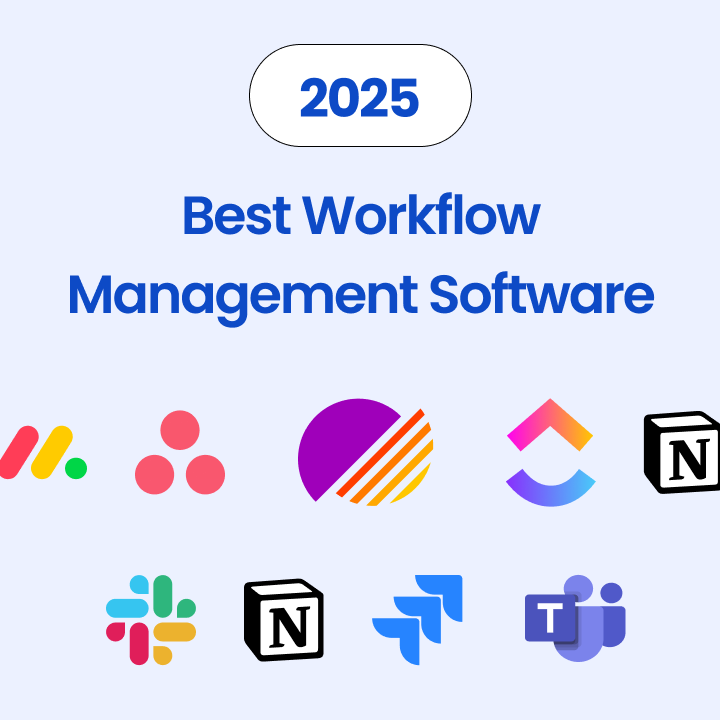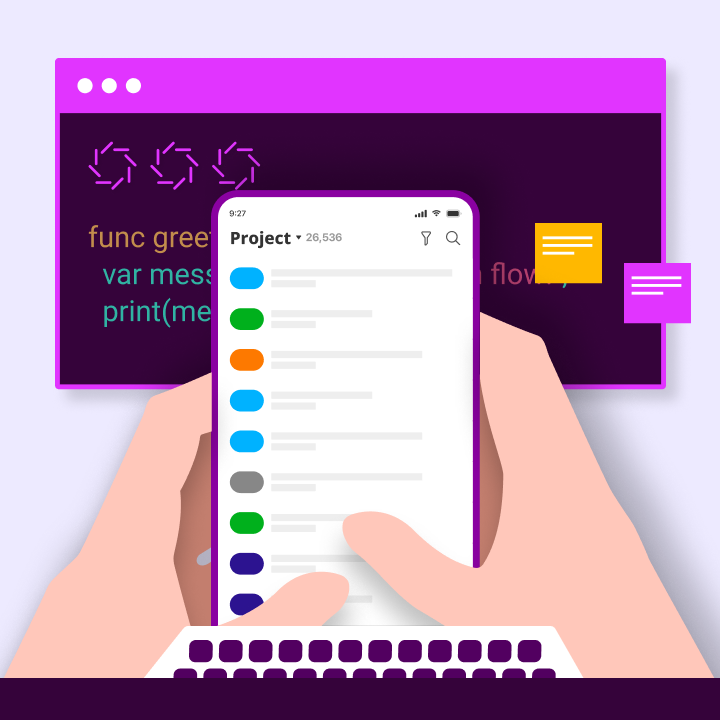Manual processes are hindering your team’s productivity. 73% of workers waste up to 3 hours each day on repetitive tasks that workflow software could automate in just minutes.
The right workflow management tool can turn chaotic handoffs into smooth processes. Whether you’re overwhelmed by email chains or facing project bottlenecks, our curated list of 25 top-rated platforms has the perfect solution for you.
What you’ll find:
- A detailed comparison of free versus paid workflow tools
- Feature comparisons across 25 leading platforms
- Recommendations for small businesses and enterprise workflow automation solutions
- Insights into automation capabilities and integration options
- Real user feedback and pricing details
Morningmate tops our rankings with its user-friendly combination of task management and team collaboration. Teams have reduced project completion time by 40% using its dedicated feeds and customizable dashboards.
What Is Workflow Management Software?
Workflow management software streamlines how work flows through your organization. Think of it as a digital assembly line that connects people, processes, and data into one cohesive system.
At its core, this technology outlines your business processes step-by-step. It clarifies who is responsible for each task, when they should complete it, and what follows next. From simple approval chains to complex multi-department projects, workflow software removes uncertainty.
Why Businesses Need Workflow Systems
Chaos costs money. Companies without structured workflows lose an average of $62 million each year due to inefficient processes, according to recent productivity studies.
Your team manages multiple projects at once. Email threads can become overwhelming. Deadlines may be missed. Important decisions can linger in someone’s inbox for days.
Does this sound familiar?
Workflow systems address these challenges by creating predictable pathways for completing work and streamlining processes. They establish clear ownership, set automatic reminders, and offer real-time progress tracking.
The outcome? Teams finish projects 35% faster, reduce human error, and cut mistakes by up to 50%. Morningmate’s workflow templates facilitate this transformation, allowing you to implement proven processes in minutes instead of months.
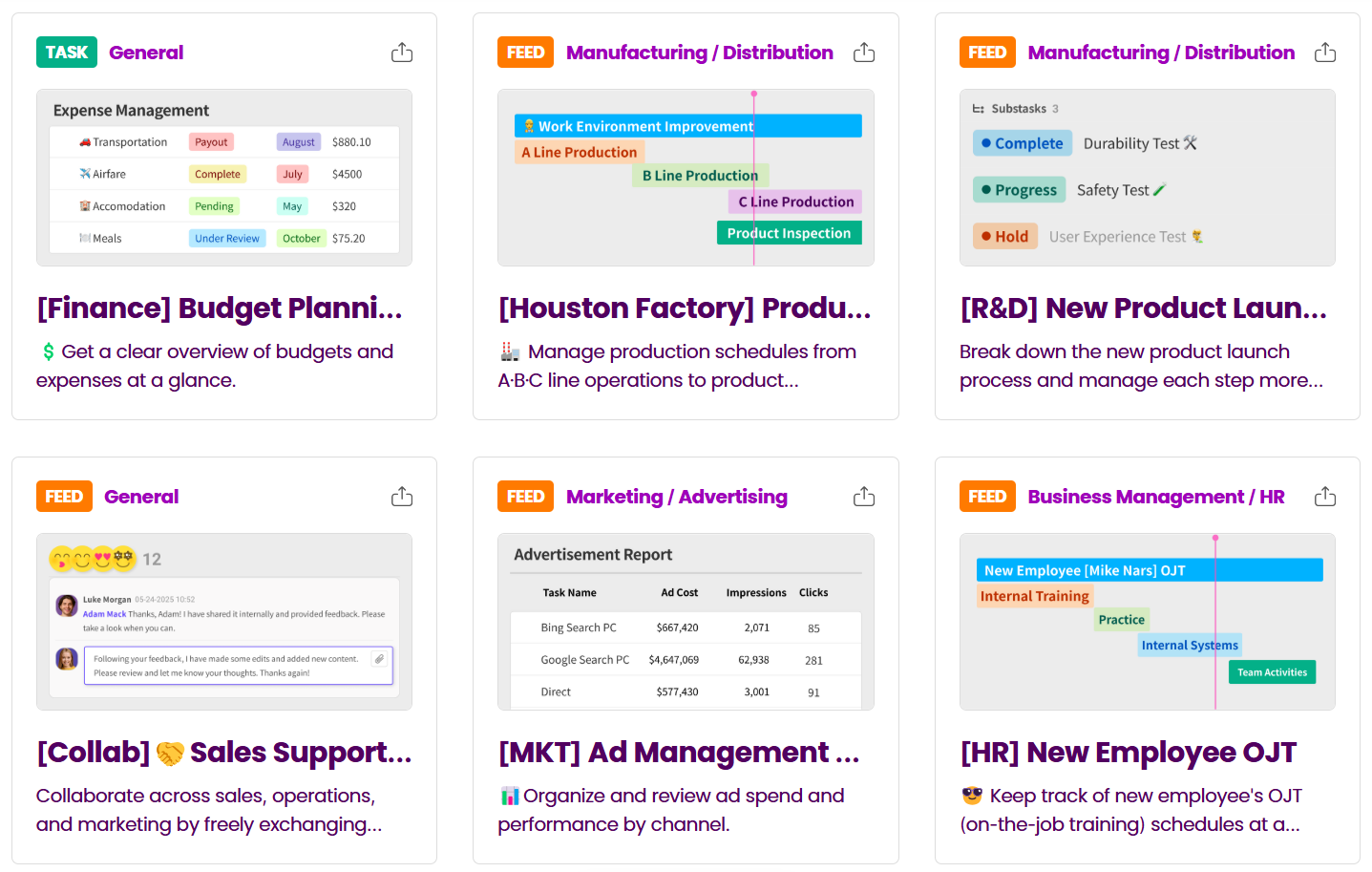
| Without Workflow Software | With Workflow Software |
| 3+ hours daily on manual coordination | Automated task routing saves 60% of coordination time |
| 40% of deadlines missed | 90% on-time completion rates |
| Email-based status updates | Real-time progress dashboards |
| Manual error rates: 15-25% | Error reduction up to 50% |
Key Benefits of Workflow Software
- Increased Productivity: Automated task routing reduces manual handoffs. Team members spend less time asking “what’s next” and more time delivering results.
- Better Accountability: Each step has a clear owner and deadline, eliminating blame-shifting when projects stall.
- Reduced Errors: Standardized processes lower the risk of human mistakes. Built-in validation rules catch issues before they escalate.
- Enhanced Visibility: Managers can quickly assess project status. Real-time dashboards highlight bottlenecks, allowing for swift adjustments.
- Improved Compliance: Documented workflows ensure consistent adherence to regulations and company policies, which is crucial for audits and quality certifications.
Manual vs. Automated Workflow: What’s the Difference?
| Manual Process | Automated Process |
| Employee emails expense report | System detects new expense submission |
| Manager checks email and reviews manually | Workflow routes to the appropriate manager based on amount/department |
| Manager emails approval/rejection | System sends automatic approval notification |
| HR manually updates records | Database updates automatically with an audit trail |
Morningmate’s Posts & Tasks feature perfectly bridges this gap. You can start with manual task assignments and gradually introduce automation rules as your processes evolve. The flexible virtual workspaces adapt to your team’s specific needs without imposing rigid structures.
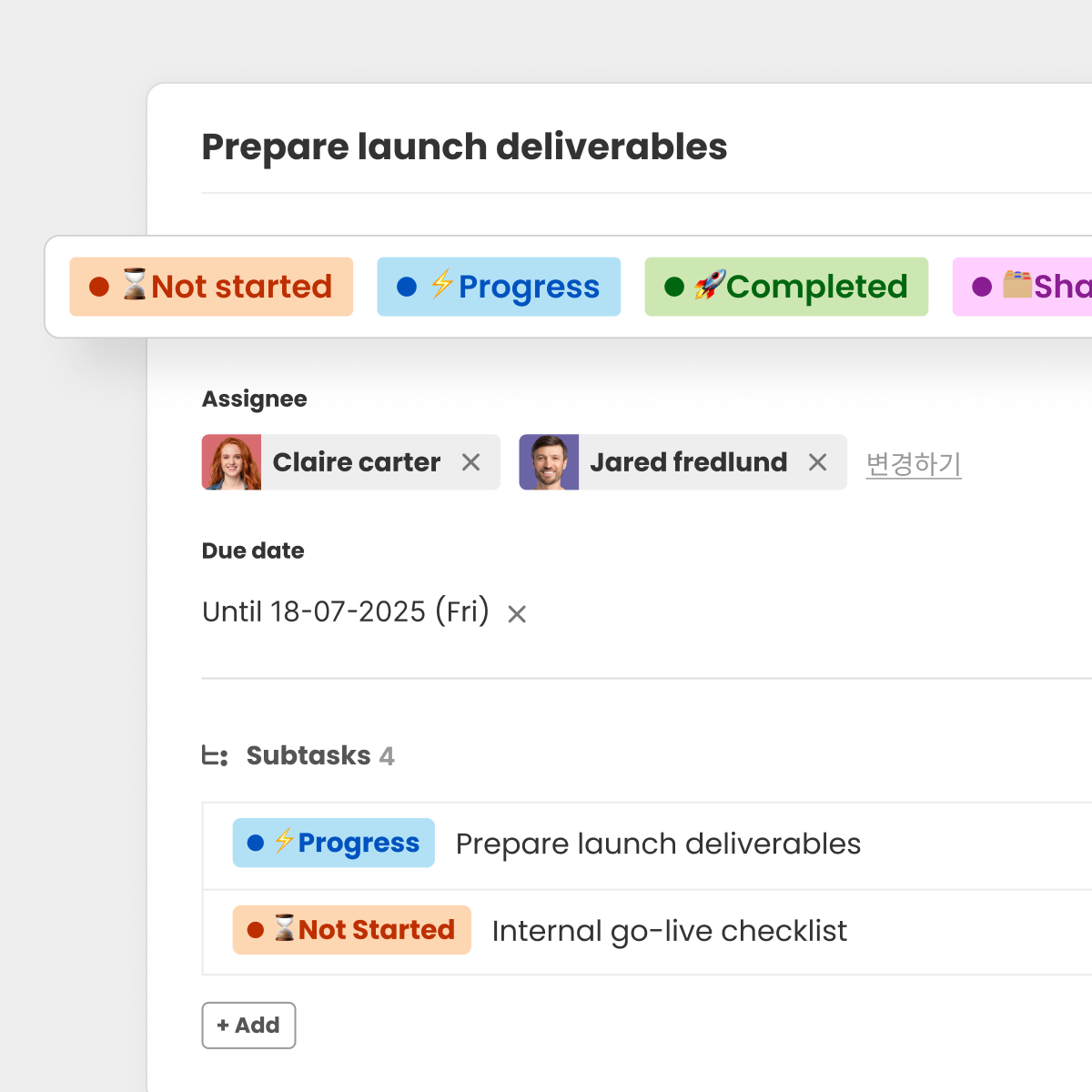
The productivity gains are significant. Teams using automated workflows complete routine processes 60% faster while achieving higher accuracy rates.
What to Consider When Choosing Workflow Management Tools
Selecting workflow software can be daunting with so many options available. To simplify your decision, focus on these five essential factors.
The best workflow automation tools blend robust automation with user-friendly design and advanced features that anyone can navigate without a technical background.
Automation and Process Customization
Key automation features to look for include:
- Conditional logic for various scenarios
- Automatic task assignments based on team workload and expertise
- Deadline reminders with escalation protocols
- Status updates without manual input
Customization Options: Morningmate’s workflow templates offer reliable starting points that you can adjust to meet your specific needs.
| Basic Features | Advanced Features |
| Drag-and-drop builder | Custom field creation |
| Pre-built templates | API access |
| Simple approval chains | Multi-level routing |
Collaboration and Communication Features
Important communication tools to consider:
- Threaded comments on tasks and documents
- @mentions for immediate team notifications
- File sharing with version control
- Activity feeds for all projects
Morningmate’s dedicated feeds provide a social media-like experience for quick project updates without needing to dive into individual tasks.
Integration Capabilities
Key integration categories include:
- Communication: Slack, Teams, email systems
- File Storage: Google Drive, Dropbox, OneDrive
- Business Apps: CRM, accounting, time tracking tools
Morningmate’s Google Workspace integration creates a seamless workflow ecosystem with your existing business tools.
Ease of Use and Scalability
Checklist for user interface:
- Intuitive navigation for newcomers
- Clean visual design to minimize cognitive load
- Mobile responsiveness for remote work
- Quick onboarding to boost immediate productivity
Scalability Considerations: Opt for software that can grow with your organization, avoiding the need for difficult migrations later.
Free vs. Paid Plans
Free plans typically include:
- Basic task management (2-5 users)
- Limited automation
- Standard templates
- Email support only
Consider upgrading when:
- Your team exceeds user limits
- You need advanced automation
- Integration requirements expand
Morningmate’s free tier offers substantial functionality, including a personal dashboard and task features. Assess ROI by comparing costs against productivity gains—automation often benefits teams of 10 or more.
Top Workflow Automation Tools for Streamlining Processes
We have evaluated numerous workflow management platforms to present you with the top choices for 2025. Each tool excels in different areas, from simple task automation to comprehensive enterprise-grade process management.
Our assessment focused on real-world performance, user feedback from G2 and Capterra, and hands-on testing with actual business workflows. The top contenders combine powerful features with user-friendly design.
1. Morningmate – Best All-in-One Solution for Teams and Clients
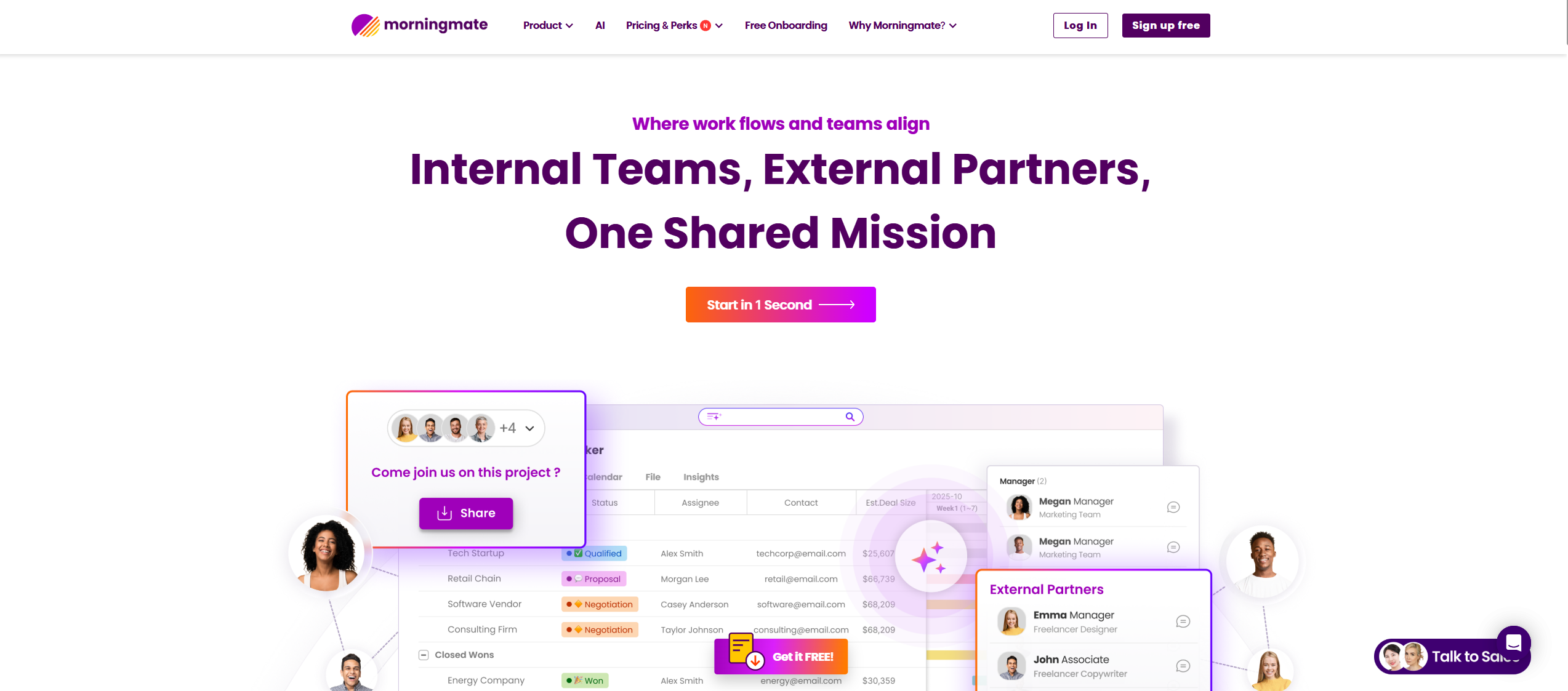
Morningmate is the most comprehensive workflow platform that balances simplicity with functionality. It integrates project management, team communication, and client collaboration into one intuitive workspace.
What distinguishes Morningmate is its social media-inspired interface, making complex workflows feel familiar. Teams can pin important updates, easily navigate project data, and maintain visibility across all initiatives without a steep learning curve.
Key Features
- Gantt Chart Timelines with drag-and-drop scheduling and automatic dependency tracking for visual project management
- Dedicated Feeds that centralize team communication with social media-style updates and pinned posts
- Personal Dashboard featuring customizable widgets and direct post interaction for comprehensive workflow management
- AI Capabilities, including intelligent task prioritization, automated workflow suggestions, and smart notification filtering
- Google Workspace Integration for seamless document management and connectivity with third-party productivity tools
2. ClickUp – Best Free Workflow Tool with Custom Views
ClickUp offers enterprise-level workflow functionality without the high cost. Its free plan supports unlimited users, making it an ideal choice for growing teams that need robust automation without budget constraints.
The platform excels in visual workflow customization with over 15 different project views. Teams can easily switch between Kanban boards, Gantt charts, calendar views, and custom dashboards based on their workflow preferences.
3. Monday.com – Visual and Customizable Workflow Builder
Monday.com transforms workflow management into a colorful, intuitive experience that non-technical teams enjoy. Its visual approach simplifies complex project dependencies.
The platform’s strength lies in its no-code automation builder, allowing users to create sophisticated workflows through simple drag-and-drop interfaces. Teams can automate everything from task assignments to client notifications without any coding.
4. Process Street – Checklist-based Automation
Process Street revolutionizes workflow management by converting complex processes into simple, repeatable checklists. This method is ideal for teams that need to standardize procedures while allowing flexibility for unique situations.
The platform is particularly effective in compliance-heavy industries where documentation and audit trails are essential. Every workflow step is tracked, timestamped, and stored for future reference or regulatory reviews.
5. Kissflow – Code-Free Workflow Designer
Kissflow enables business users to create sophisticated workflows without needing technical expertise. Its drag-and-drop interface makes process automation accessible to everyone, not just IT departments.
The platform excels in cross-departmental workflows that involve multiple approval stages and complex routing rules. Teams can design everything from simple expense approvals to multi-stage product launches.
6. Smartsheet – Spreadsheet-Like Custom Workflows
Smartsheet combines familiar spreadsheet interfaces with powerful workflow automation. Teams comfortable with Excel can transition smoothly while gaining advanced project management capabilities.
The platform’s grid-based approach is ideal for workflows that require extensive data tracking, resource planning, and collaborative editing across large teams.
7. Nintex – Advanced Workflow Automation
Nintex targets enterprises needing sophisticated process automation with minimal coding. Its platform manages complex business rules, multi-system integrations, and regulatory compliance workflows.
This enterprise workflow management software excels in document-centric processes where contract approvals, policy reviews, and compliance workflows require detailed audit trails and version control.
8. ProofHub – Centralized Work & Team Management
ProofHub merges workflow management with comprehensive team collaboration tools. Its flat-rate pricing model is cost-effective for larger teams needing unlimited users without per-seat charges.
The platform is particularly effective for creative workflows where file proofing, feedback collection, and revision management are crucial. Marketing teams and design agencies benefit greatly from its visual collaboration features.
9. Airtable – Best for Workflow + Database Hybrid
Airtable transforms traditional databases into visual workflow powerhouses. Teams can build custom applications that manage both data relationships and process automation in one unified platform.
The platform excels in data-heavy workflows where information needs to flow between multiple connected processes. It significantly benefits content management, inventory tracking, and customer onboarding workflows.
10. Pipefy – Best for Business Process Automation
Pipefy specializes in structured business processes with clear stages and predictable outcomes. Its pipe-based workflow design is ideal for sales funnels, HR processes, and customer service workflows.
The platform’s strength lies in process standardization while allowing flexibility for exceptions and special cases that require manual intervention.
11. Wrike – Great for Cross-Team Collaboration
Wrike excels in agile project management and enterprise-scale workflows that span multiple departments and external stakeholders. Its robust permission system and advanced project hierarchy support complex organizational structures.
The platform effectively manages resource-intensive workflows where capacity planning, budget tracking, and timeline management across multiple concurrent projects are essential.
12. ProcessMaker – Open Source Workflow Power
ProcessMaker provides enterprise-grade workflow automation with open-source flexibility. Technical teams can customize every aspect while business users navigate through intuitive interfaces.
The platform excels in complex regulatory workflows where compliance, audit trails, and custom business rules require detailed documentation and process control.
13. Hive – Collaborative Workflow for Agencies
Hive is designed for creative agencies and consulting firms that require adaptable workflows alongside robust project management and an intuitive user interface. It strikes a balance between structure and the creative freedom that teams need.
With its client collaboration features, Hive is perfect for workflows that involve external stakeholders during review, approval, and feedback stages.
14. Backlog – Developer-Friendly Workflow Tool
Backlog merges software development workflows with traditional project management in a single platform. Development teams can effortlessly manage tasks like code repositories, bug tracking, and release workflows.
This platform excels in technical workflows where version control, code reviews, and deployment processes integrate seamlessly with broader project management tasks.
15. Bit.ai – Best for Document-Centric Workflows
Bit.ai revolutionizes document creation and collaboration by structuring workflows. Teams can establish processes for content creation, review cycles, and publication while maintaining version control.
It is particularly effective for knowledge-intensive workflows that require collaborative editing and structured review cycles for documentation, policy creation, and content approval.
16. Fluix – Mobile-First Workflow Platform
Fluix focuses on field-based workflows where mobile access and offline functionality are essential. Teams in construction, healthcare, and field services benefit from its strong mobile capabilities.
The platform is ideal for data collection workflows that involve forms, inspections, and reporting from remote locations with unreliable internet access.
17. Cflow – No-Code Workflow for SMBs
Cflow caters to small and medium businesses seeking professional workflow automation without the complexity or cost of enterprise solutions. Its user-friendly design makes process automation accessible to non-technical teams.
The platform focuses on common business workflows, such as expense approvals, leave requests, and purchase orders, which are essential for organizations across various industries.
18. Qntrl – Affordable Workflow Control
Qntrl offers enterprise-level workflow features at prices suitable for small businesses. Its emphasis on operational efficiency and cost-effectiveness makes advanced process automation attainable for budget-conscious teams.
The platform excels in operational workflows where task routing, approval hierarchies, and performance tracking require professional-grade capabilities without the burden of enterprise costs.
19. Projectsly – All-in-One PM + Workflow
Projectsly integrates traditional project management with workflow automation in a single platform. Teams gain comprehensive project oversight along with automated process management.
This platform is ideal for project-driven organizations that need tight integration of workflows with timelines, budgets, and resource allocation across multiple initiatives.
20. Asana – Task-Based Workflow for Teams
Asana transforms task management into structured workflows through its user-friendly interface and powerful automation features. This approach facilitates seamless workflow adoption for teams familiar with task-based project management.
The platform excels in collaborative workflows where transparency, communication, and progress tracking are crucial for success across distributed teams.
21. HubSpot – Marketing + Sales Workflow Integration
HubSpot specializes in customer-facing workflows that unify marketing campaigns, sales processes, and customer service into cohesive automation sequences. Its CRM integration enhances its effectiveness for revenue-generating workflows.
The platform excels in lead-nurturing workflows, ensuring that marketing-qualified leads transition smoothly to sales teams with automated follow-ups and engagement tracking.
22. Workzone – Marketing Workflow for Mid-Sized Teams
Workzone serves marketing departments in mid-sized companies that require professional workflow management without the complexity of enterprise solutions. Its industry focus makes it particularly effective for campaign and content workflows.
The platform excels in creative approval workflows, allowing multiple stakeholders to review, comment, and approve marketing materials through structured processes.
23. Process Bliss – Simple Repeatable Workflow Creator
Process Bliss emphasizes recurring business processes that require consistent execution among team members. Its checklist-based approach simplifies complex workflows, making them manageable and less prone to errors.
The platform excels in standard operating procedures, where consistency, training, and quality control take precedence over flexibility or customization.
24. Zoho Creator – Customizable Business Workflows
Zoho Creator enables custom application development with advanced customer service workflow automation integrated into each business application. Teams can create tailored workflow solutions that meet their specific process needs.
The platform excels in industry-specific custom workflows, addressing specialized business processes or regulatory requirements that standard software cannot accommodate.
25. Jira – Best for Agile Workflow Management
Jira leads in software development workflows, offering robust support for Agile methodologies, sprint planning, and development lifecycle management. Its workflow engine adapts to any development process while providing detailed tracking.
The platform excels in technical project workflows, where integration of code repositories, testing cycles, and deployment processes with extensive document management is essential.
Top Free Workflow Software Options
Free workflow software has advanced significantly, offering automation and team collaboration features that can compete with paid solutions.
Understanding the difference between feature limitations and usage restrictions is crucial. Some platforms provide full functionality for small teams, while others limit features for unlimited users.
Which Tools Offer Free Plans?
Generous Free Tiers:
- ClickUp: Unlimited users, advanced automation, and 100MB of storage.
- Morningmate: Personal dashboard, dedicated feeds, and Gantt charts for small teams.
- Asana: Up to 15 members with unlimited tasks and basic workflow automation.
Limited Feature Plans:
- Monday.com: 3 seats with core workflow features; advanced options require upgrades.
- Trello: Unlimited personal boards with basic Butler automation.
- Smartsheet: 30-day trials, followed by view-only access.
Enterprise Trials Only:
- Nintex, ProcessMaker, Kissflow: 30-day trials aimed at organizations ready to invest in comprehensive automation.
Free plans are ideal for small teams exploring workflow concepts, but growing businesses often need paid features for advanced automation and integrations.
Feature Comparison: Free vs. Paid Automation Tools
| Feature Category | Free Plans Typically Include | Paid Plans Add |
| Per User Limits | 2-15 users, depending on the platform | Unlimited users or higher limits |
| Workflow Automation | Basic triggers and simple rules | Advanced conditional logic and multi-step automation |
| Storage | 100MB – 2GB file storage | 10GB – unlimited storage options |
| Integrations | Limited third-party connections | Full integration libraries and API access |
| Support | Email support with delayed response | Priority support, phone, and chat options |
| Advanced Features | Standard templates and views | Custom branding, advanced analytics, enterprise security |
Start Free If:
- Your team has fewer than 10 active workflow participants.
- Workflows involve simple approval chains or task routing.
- Budget constraints prevent immediate software investment.
- You need to demonstrate workflow value before securing budget approval.
Invest in Paid Plans When:
- Workflow automation saves more than 5 hours weekly per team member.
- Client collaboration and professional presentation become essential.
- Advanced reporting and analytics inform business decisions.
- Integration with existing business systems is critical.
The best strategy combines strategic use of free plans with planned upgrades as your workflow needs evolve. Morningmate’s flexible pricing allows teams to start small and scale seamlessly without losing momentum during transitions.
Best Workflow Tools for Small Businesses
Small businesses require workflow software that delivers immediate value without complicated setups. Budget constraints and limited IT resources make choosing the right platform essential.
Lightweight Software With Automation
Top picks for small teams:
- Morningmate: A social media-inspired interface with powerful Gantt charts and automated task routing.
- Process Street: Checklist-based workflows that standardize procedures without unnecessary complexity.
- Cflow: Designed for SMBs, featuring pre-built templates for expense approvals and leave requests.
Key benefits:
- Quick implementation (productive within the first week).
- Minimal training needed due to intuitive interfaces.
- Essential automation without overwhelming features.
- Affordable, transparent pricing that scales predictably.
Workflow Management Systems That Scale With Growth
Scalable options:
- ClickUp: Unlimited users on the free plan, perfect for rapidly growing teams.
- Asana: Clear upgrade paths from basic methods to sophisticated automation.
- Morningmate: Flexible architecture with industry-specific templates.
Scaling considerations:
- User limit flexibility without costly jumps.
- Feature progression aligned with growth plans.
- Professional implementation assistance available.
- Integration compatibility with future investments.
The best small business workflow tools start simple and scale smart, avoiding painful platform migrations.
How to Choose the Right Workflow Software
Choosing workflow software shouldn’t take months. Focus on team fit rather than just features—the best platform is the one your team will actually use.
Consider Your Team Size & Workflow Complexity
Team size quick guide:
- Small (2-10 users): Free tiers like Morningmate or ClickUp.
- Medium (10-50 users): Collaboration-focused options like Asana.
- Large (50+ users): Enterprise solutions like Nintex.
Complexity Matching: Simple workflows need simple tools, while complex processes require advanced automation. Morningmate’s templates allow you to start basic and scale up naturally.
Look for Key Integrations
Must-have connections:
- Communication tools (Slack, Teams).
- File storage (Google Drive, OneDrive).
- Business apps (CRM, accounting).
Red flags:
- Limited APIs or one-way syncing.
- Hidden integration costs.
Morningmate’s Google Workspace integration automates document flow without manual file handling.
Don’t Ignore Onboarding and Support
Good onboarding includes:
- Setup assistance and templates.
- Video tutorials and user communities.
- Morningmate’s expert guidance helps avoid common setup mistakes.
Support essentials:
- Fast response times (24-48 hours for email, real-time chat).
- Technical expertise for complex issues.
Quick decision checklist:
- Will your team use it?
- Does it handle your main workflows?
- Can it integrate with existing tools?
- Is reliable support available?
Test with real workflows first. The right choice can save you months of productivity headaches.
Ready to Transform Your Workflows Today with Morningmate?
Workflow software is not just about organizing repetitive tasks—it’s about unlocking your team’s potential. The right platform eliminates bottlenecks, reduces errors, and creates space for meaningful work that drives results.
Key takeaways:
- Start with team size and complexity before evaluating features.
- Free plans offer real value for small teams and simple workflows.
- Integration capabilities are often more important than advanced automation for most businesses.
- Onboarding support is crucial for long-term platform success.
- Test with real workflows, not hypothetical scenarios.
Morningmate provides everything discussed in this guide without the complexity that hinders adoption. Its user-friendly interface feels familiar, while its Gantt charts and automated workflows manage sophisticated processes effortlessly. Whether you’re overseeing client projects or internal operations, Morningmate adapts to your needs without forcing platform migrations.
Ready to see the difference? Start your free Morningmate workspace today and transform how your team works.
FAQs About Workflow Software
What’s the difference between workflow and project management tools?
- Workflow management software focuses on process automation and task routing among team members. It defines how work moves through your organization with automated triggers and approvals.
- Project management tools emphasize timeline planning, resource allocation, and deadline tracking for specific initiatives. They manage what gets done and when.
Morningmate bridges both worlds by combining workflow automation with comprehensive project oversight in one platform.
Are there free workflow tools with automation?
Yes, several platforms offer genuine automation on free plans. ClickUp provides unlimited users with basic automation rules, while Asana includes simple workflow triggers for teams of up to 15 members.
Morningmate’s free tier offers robust automation, including dedicated feeds and task routing capabilities—ideal for small teams testing workflow concepts.
Most free plans limit advanced automation features like conditional logic and multi-step processes to paid tiers.
What’s the best project management software for small business workflows?
Morningmate tops our small business recommendations with its intuitive interface and industry-specific templates. Teams gain enterprise-grade features without overwhelming complexity.
Process Street excels at checklist-based workflows that standardize procedures as businesses grow. Cflow specifically targets SMBs with pre-built templates for common processes.
The best choice depends on your team size, technical comfort level, and workflow complexity requirements.
Which tools support no-code workflow creation?
Most modern workflow platforms offer drag-and-drop builders that require no coding knowledge. Monday.com and Kissflow excel at visual workflow design with user-friendly interfaces.
Morningmate‘s workflow templates provide proven starting points that you can customize through simple point-and-click modifications using an automation tool. Their visual process builder makes complex automation accessible to non-technical users.
Nintex and ProcessMaker offer more advanced no-code capabilities for enterprise-level workflow complexity.
Finally, what sets Morningmate apart is
Ultimately, what sets Morningmate apart is its all-in-one collaboration environment that combines workflow automation, communication, and project management in one place. While other tools specialize in specific areas, Morningmate eliminates the need for multiple apps by connecting teams, tasks, and workflows seamlessly. For businesses seeking simplicity, affordability, and operational efficiency, Morningmate delivers a truly integrated no-code experience.

